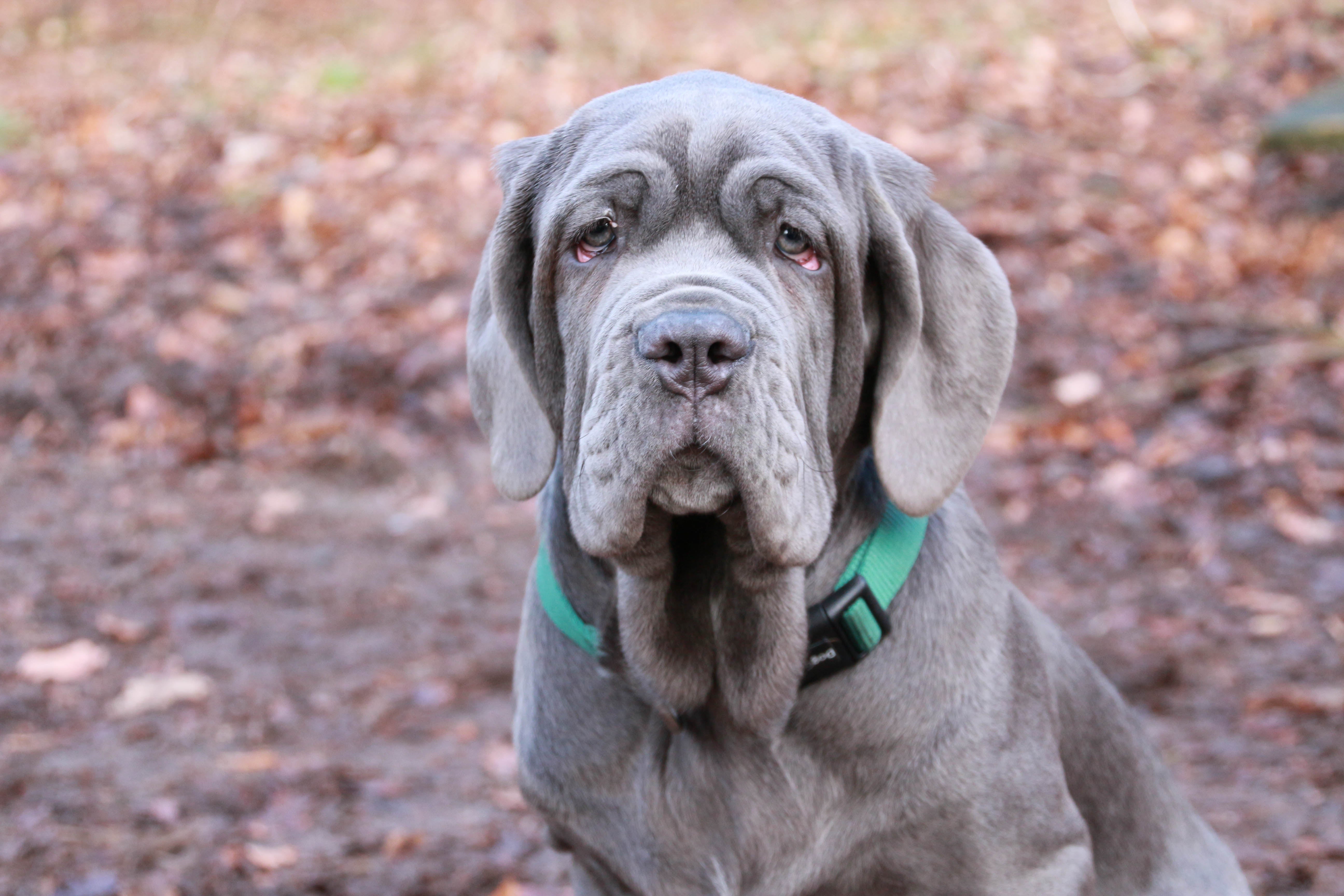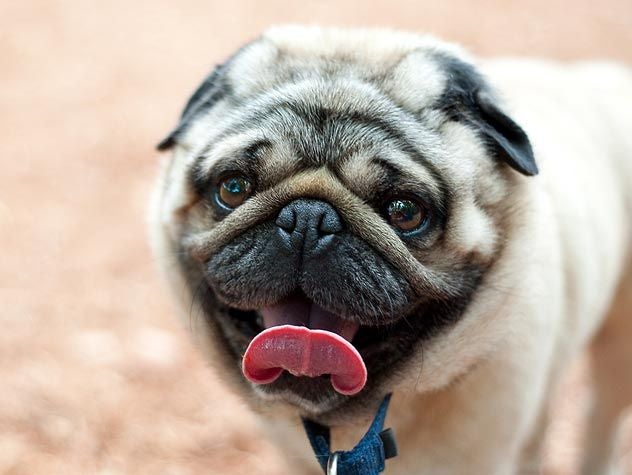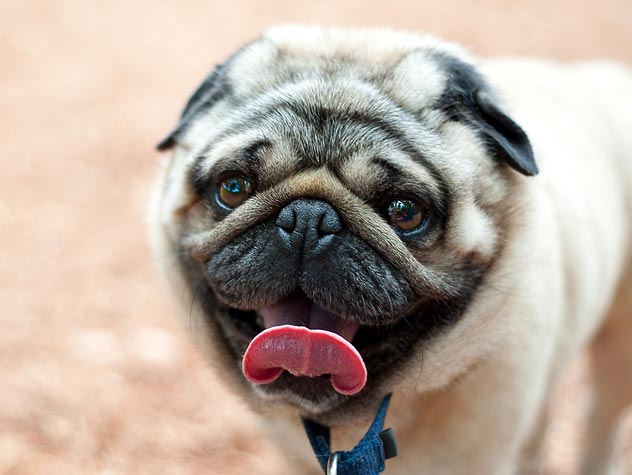Neapolitan Mastiff
The Neapolitan Mastiff is a massive, powerful guard dog with a unique appearance. Their profuse hanging wrinkles, folds, and dewlip make them instantly recognizable. When paired with their alert, intelligent eyes, they have a strikingly noble appearance reinforced by their short, silver-sheened coat.
Breed characteristics carousel
Learn More
Need to Know
- Suitable for experienced owners
- Extra training required
- Potential health risks
- Enjoys active walks
- Can be left alone occasionally with training
- Giant dog
- Lots of drool
- Requires frequent grooming
- Generally a quiet dog
- Barks, alerts, and may be physically protective/suspicious of visitors
- Gets along well with dogs it knows, but could have issues with unknown dogs
- May need additional training to live with other pets
- May need additional supervision to live with children
- Needs a large yard, either in suburban or rural areas
- Can live in suburban areas
- AKC Registered Breed

Personality
While Neapolitan Mastiff dogs are huge, their intimidating appearance can be balanced out with a goofy, affectionate demeanor shown towards their loved ones. Thanks to their guard dog nature, they are watchful and suspicious of strangers; however, one would be hard-pressed to find a more loyal, devoted, and protective dog towards their family.
Neapolitan Mastiffs are even-tempered homebodies. They make good family pets, but due to their size and potential clumsiness are not well suited to be around young children, even though they are tolerant of them.
Dating back possibly as far as 700 B.C., Neapolitan Mastiff dogs were employed as war dogs, gladiators, and guardians in the Roman Empire. Relatively unknown to the outside world until they were spotted at a dog show in Naples in 1946, Neapolitan Mastiffs didn’t make their way to America until the 1970s.
Everything the Neapolitan Mastiff breed will require will be super-sized, from a yard to a dog bed to a food bowl. Be ready to carry a drool cloth with you everywhere you go to mop up! Ideal owners will have large, open homes with decent-sized yards.
Bigger doesn’t necessarily mean more exercise; Neapolitan Mastiff dogs can be overexercised. Excessive running and quick turns can cause joint problems for this breed, as can excessive use of stairs. These dogs often do not know their limit, so it is up to owners to help regulate their enrichment. The Neapolitan Mastiff breed also overheats easily, so exercise in excessive heat should be monitored closely and kept to a minimum. Owners should take caution when playing with Neo Mastiffs and avoid games involving biting, wrestling, or tug-of-war as they can potentially be stronger than their owners.
Neo Mastiffs require a large amount of open indoor space. Close quarters, small furniture, and small hallways are not conducive to their big size, clumsy ways, and long swinging tails. Small yards will not provide them with enough space to roam, run, and play as they need.
Neo Mastiffs have short coats that need the occasional bath. The dog’s eyes, ears, and folds need to be checked and cleaned daily if not after every meal. You will also need to have drool clothes ready at all times to wipe up behind them.
Though adults of this breed are calm and spend a lot of their time sleeping, Neapolitan Mastiff puppies are active, curious, and affectionate. It’s key to train and socialize these dogs from a very early age. Neo Mastiffs do not respond well to harsh training and owners should use positive reinforcement and rewards.
While this dog has a demeanor suitable for families, their sheer size makes them not a great fit for households with small children or smaller dogs. It is best if they are the family’s only animal.
The cost of a Neapolitan Mastiff from a breeder is significantly more than the cost of adopting one from a local shelter or rescue. The adoption fee usually covers additional items such as spaying or neutering, vaccines, and microchipping.

Learn more about feeding and caring for your Neapolitan Mastiff on Purina.
Did You Know?
- One of the most popular Neapolitan Mastiffs is “Fang,” Hagrid’s loyal companion in the Harry Potter films. Nine different dogs were used across the film franchise.
- Neo Mastiffs have been nicknamed the “200-pound lapdog” due to their affectionate natures.
- The Neo Mastiff breed has additional names: Mastini, Mastino, Mastino Napoletano, Italian Molosso, Can’e Presa, Mastino Neapolitano, and Italian Mastiff.


